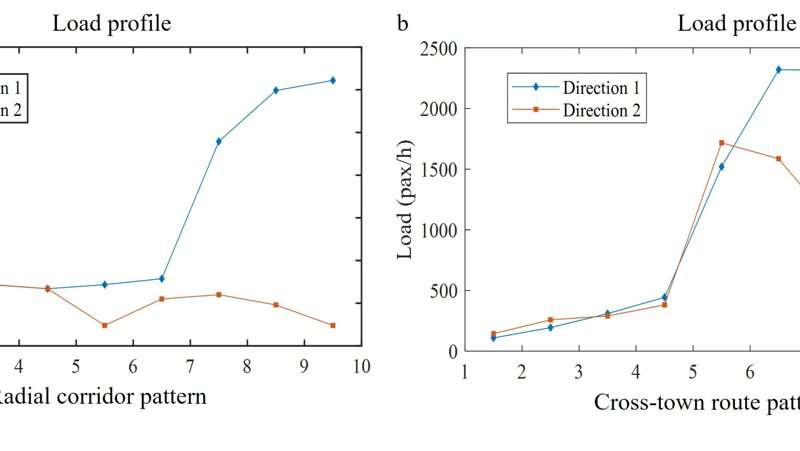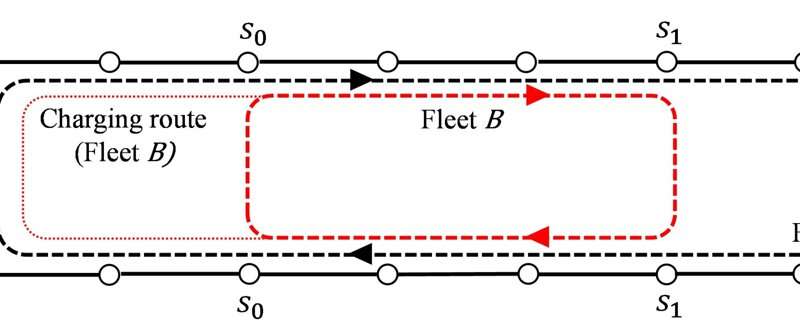Making the operations of battery electric bus systems more efficient: Short turning strategy

Urban transit operation presents seriously uneven passenger load along bus lines during peak periods. This is especially serious in electric battery bus fleets; electric buses must recharge batteries after executing several route circulations, and the charging time is long.
We have designed a short turning strategy for the electric battery bus system to effectively minimize operation costs and passenger waiting times. In consideration of both vehicle configuration and charge scheduling, our results show that the strategy achieves total cost savings higher than 11 percent.
The frequencies and charging schedules of the two electric battery bus fleets along the whole bus line and the short turning line are jointly optimized by formulating a microeconomic model for electric battery bus systems. Moreover, we identified the optimum battery capacity that ensures the electric battery buses operate properly and recharge as few times as possible during peak periods.
Short turning line fleet and whole line fleet use different charging strategies
During the peak period, there are two distinct electric battery bus fleets: One is intended for serving the whole line, while the other is designed for serving the short turning line. The need to recharge the buses while improving the operating efficiency brings significant challenges for operators. By mathematically seeking the optimum charging schedules and short turning line, the electric battery bus system can minimize the total passenger waiting time while reducing operational costs. The short turning strategy for diesel buses focused on determining the starting and end stops for operating a short turning line; we tracked not only the selection of the start and end stop, but also the recharge scheduling for two fleets to avoid running out of charge.

We analyzed the impact of the recharge schedule on electric battery bus operation, explicitly established the costs of operating the whole line and short turning line with given frequencies. The short turning line design problem was then modeled as an unconstrained optimization problem to obtain the analytical expressions for optimal frequencies.
Because the large charging trip distance and the long charging time incurred by battery charging will significantly reduce the efficiency of operating a short turning line, the batteries of fleets serving the short turning line should be large enough to support the buses operating continuously during the peak period. To the contrary, a smaller battery is best for the fleet serving the entire line, as they contribute less to the reduction of passenger waiting time.
This story is part of Science X Dialog, where researchers can report findings from their published research articles. Visit this page for information about ScienceX Dialog and how to participate.
More information:
Wenwei Zhang et al, Optimal operating strategy of short turning lines for the battery electric bus system, Communications in Transportation Research (2021). DOI: 10.1016/j.commtr.2021.100023
Dr. Wenwei Zhang and Dr. Min Xu work in the Department of Industrial and Systems Engineering, The Hong Kong Polytechnic University, Hung Hom, Hong Kong, China.